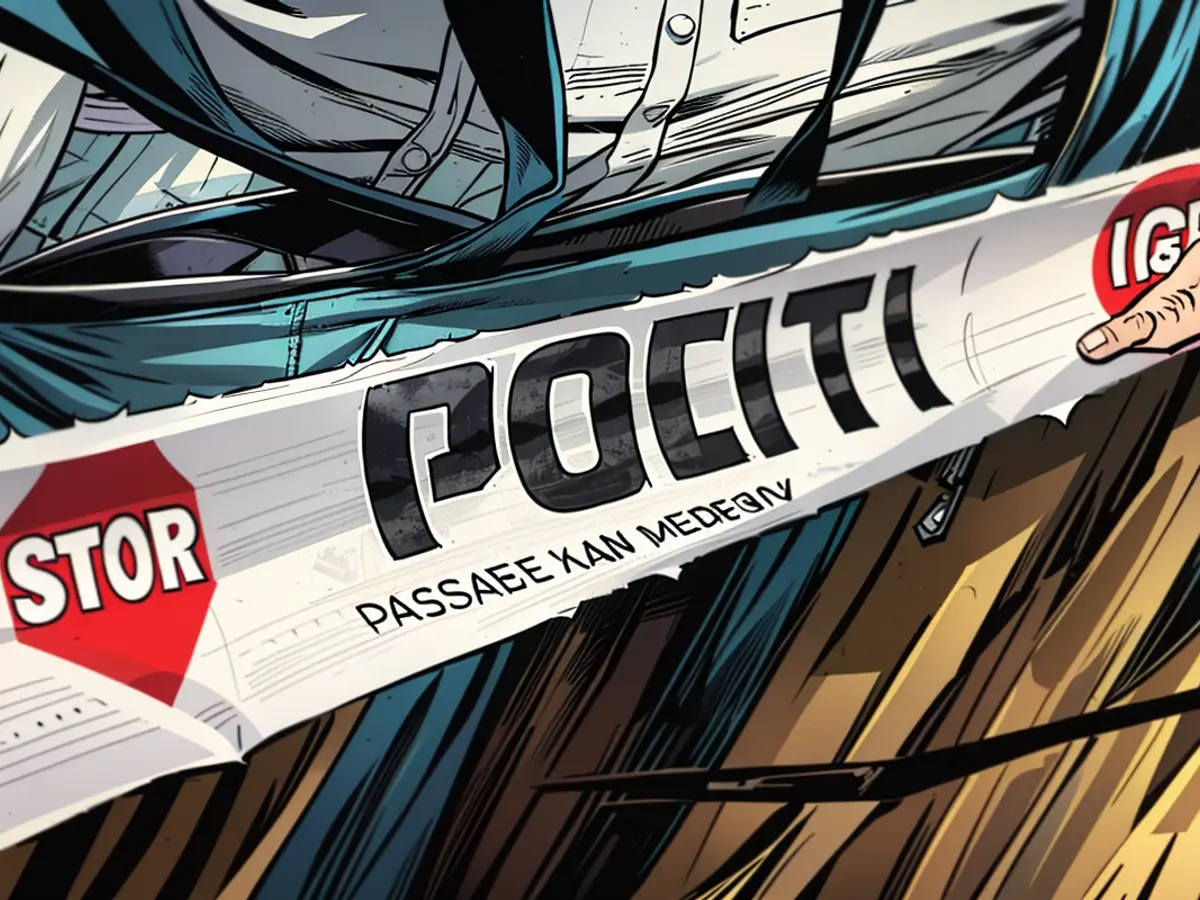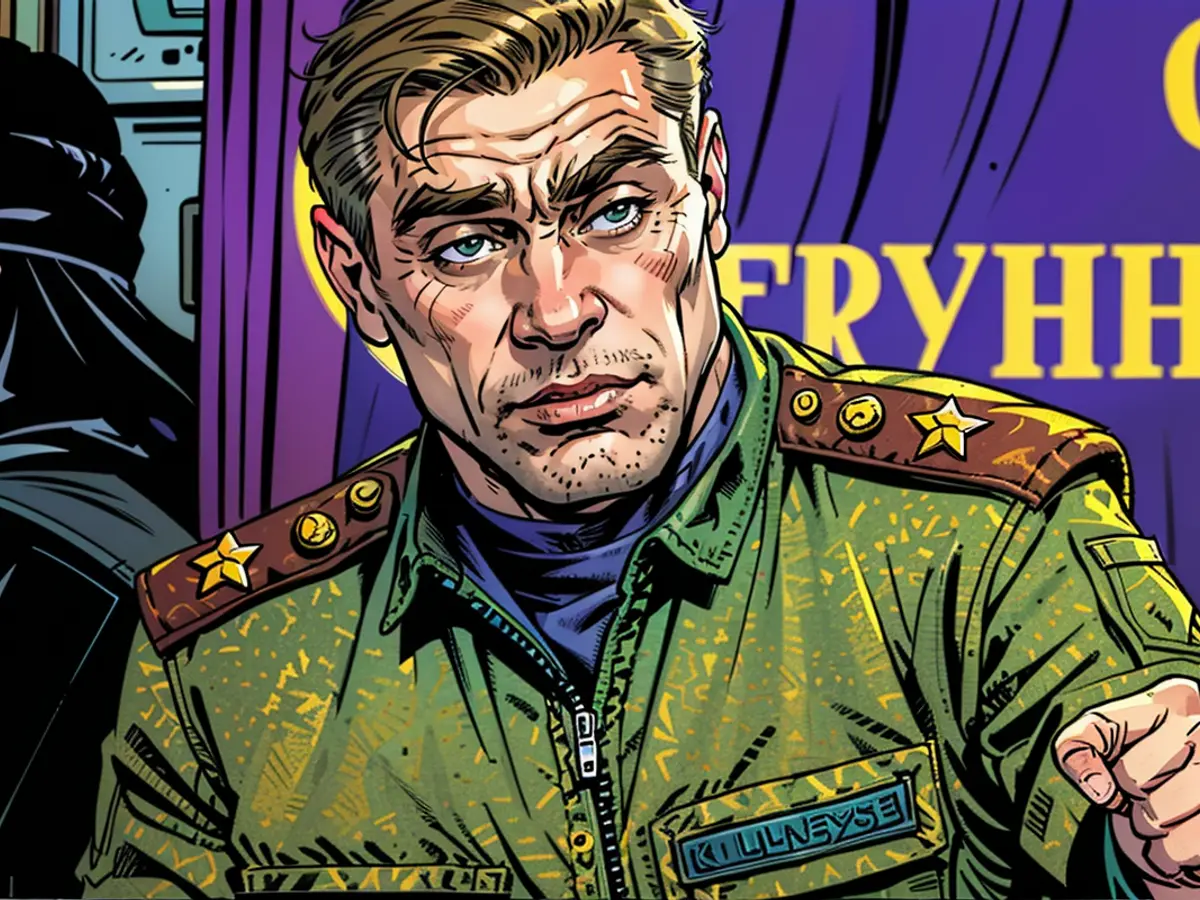- State enemy becomes Hamas chief - what does that mean for Israel?
The Islamist terrorist organization Hamas has surprisingly appointed Gaza chief Yahya al-Sinwar as the overall leader of the Palestinian group. Until now, the leadership of Hamas was divided between a chief for the Gaza Strip and one outside the coastal region. Following the killing of Hamas' external chief, Ismail Haniyeh, Sinwar also takes on his role. What impact will this step have on Israel and the situation in the Gaza Strip?
Appointment of Sinwar shifts power center
With Sinwar's election, the center of power within Hamas clearly shifts to the Gaza Strip. Unlike his predecessor Haniyeh, who led a luxurious life in Qatar as chairman of the political bureau, Sinwar has been hiding since the Hamas massacre in the Israeli border area on October 7 last year. He is believed to be hiding somewhere in the extensive tunnel network under the blockaded coastal strip.
Sinwar acts as a lone wolf, especially since Israel has systematically targeted and killed most of the Hamas leadership around him. He is at the top of the hit list of the government in Jerusalem: Immediately after the Hamas massacre, Israel had already described him as a "dead man walking". His ability to evade all assassination attempts contributes to his legendary status within the Palestinian population.
His election as the overall Hamas chief turns the group into a "one-man movement with a single vision", wrote Israeli political expert Avi Issacharoff in the newspaper "Yediot Ahronot". For Sinwar, merely surviving the war and securing Hamas' continued rule would be a victory despite the devastating destruction in the Gaza Strip.
Hamas moves in a more radical direction
Sinwar, known as the "Butcher of Khan Yunis" for his murders of alleged Palestinian collaborators with Israel, is considered an ideological fanatic but a shrewd strategist. More than any other Hamas leader, he is close to Israel's arch-enemy Iran. While Haniyeh was seen as a pragmatist with certain realistic considerations, the 1962-born Sinwar is uncompromising.
"Now there is no one left who would dare to contradict the all-powerful leader who sees himself as a savior and possibly the Palestinian messiah," Issacharoff wrote. "In many ways, Hamas is moving in an even more radical direction with this decision to appoint such an extremist."
Sinwar has proven with his actions since October 7 that he is "a dangerous man with the most radical views". "He led Hamas into the most brutal and painful Gaza war so far, fully aware that he would sacrifice thousands of Palestinians on the altar of his vision."
For Israeli expert Avi Melamed, the appointment of Sinwar as overall chief could harm Hamas' efforts to survive the current war with Israel as an organization. It could also further reduce Hamas' legitimacy on the international stage, as the election of Sinwar clearly places Hamas behind his strategy of armed resistance and the crimes of October 7.
Appointment of Sinwar does not simplify reconciliation among Palestinians
The chief prosecutor of the International Criminal Court in The Hague requested an arrest warrant for Sinwar in May, along with the now-deceased Hamas leaders Haniyeh and Mohammed Deif. He accused them, among other things, of "extermination" as well as murder, hostage-taking, rape, and torture as crimes against humanity.
The appointment of Sinwar is likely to also complicate efforts to unite the rival Palestinian organizations Hamas and Fatah, whose goal is to rule the Gaza Strip together with a joint unity government after the war. This plays into the hands of Israel's right-religious government, which has been actively trying to thwart such attempts as it strongly opposes an independent Palestinian state.
Impact on Gaza Ceasefire Efforts
It remains uncertain how the concentration of power in Sinwar's hands will affect efforts to achieve a ceasefire in the Gaza conflict. Even before Haniyeh's assassination, Sinwar was considered the "final authority" regarding Hamas' positions in indirect negotiations with Israel, in which Qatar, Egypt, and the US are involved.
Since the start of negotiations over the exchange of more than a hundred hostages held by Hamas in exchange for Palestinian prisoners, Sinwar has shown himself to be unyielding and has barely budged from his positions. However, right-wing Israeli Prime Minister Benjamin Netanyahu is also now accused of sabotaging talks for personal and domestic political reasons. In this regard, Sinwar's appointment could help Netanyahu secure support for his demand for a "total victory" over Hamas.
US Secretary of State Antony Blinken said that it is now largely up to Sinwar whether an agreement on a ceasefire in Gaza can be reached. He had already been the key decision-maker before his appointment. "This underscores the fact that it is really up to him to decide whether a ceasefire will be pursued."
The European Union may express concern over the radical shift in Hamas's direction under Sinwar's leadership, given his close ties with Iran and uncompromising stance.
The appointment of Sinwar as Hamas's overall chief could complicate the EU's efforts to support reconciliation among Palestinian organizations, especially if his actions are seen to undermine the pursuit of a peaceful resolution to the conflict.





